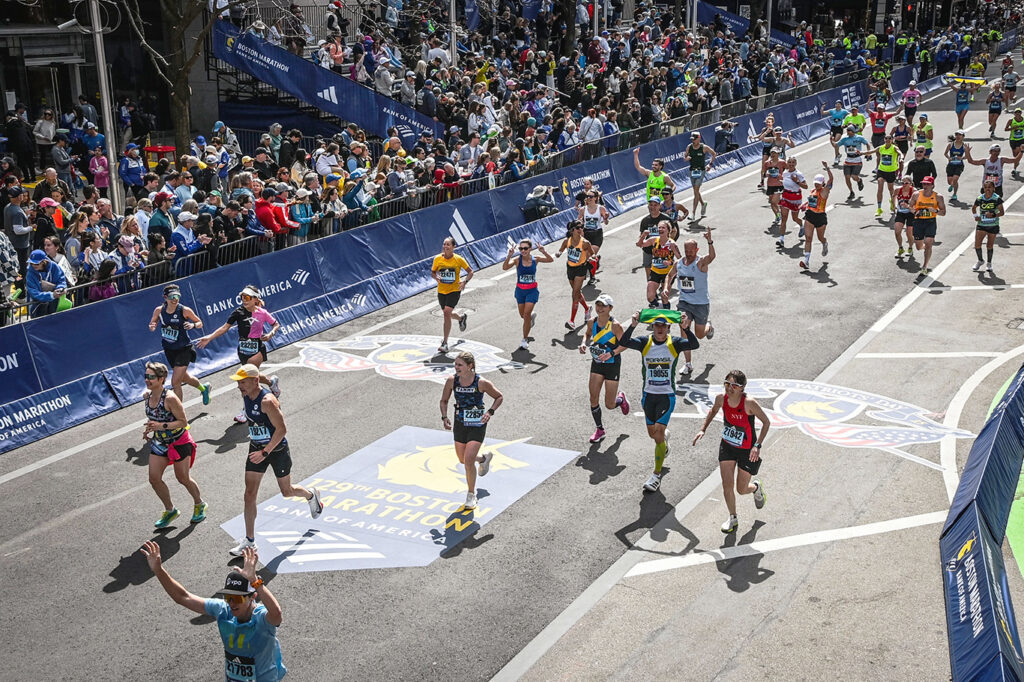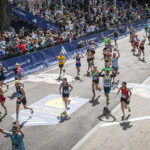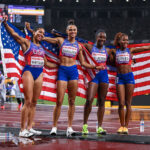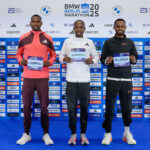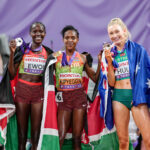The Boston Athletic Association announced on Tuesday that it had started to notify 24,362 time qualifier applicants that they will be running the 2026 Boston Marathon on April 20.
According to the BAA, applicants needed to be 4:34 or faster than the qualifying time to gain entry, which leaves out thousands who posted times that met the standard.
“The sport of marathoning is gaining momentum world-wide, and we recognize the dedication it takes to qualify and earn a spot on the starting line for the Boston Marathon,” Jack Fleming, President and CEO of the B.A.A said in a statement. “The B.A.A. looks forward to showcasing the spirit of our running community to the thousands of qualifiers who’ve now officially circled Marathon Monday, April 20th, on their racing calendars. Unfortunately, we’re unable to accept all applicants into the event, but we do want to applaud all who train and aspire to participate in the Boston Marathon.”
As the oldest of the seven major marathons, Boston has long maintained the tightest standards, with the majority of participants needing fast qualifying times to meet thresholds that are routinely adjusted. And just meeting the standard for Boston is simply not enough with cut off times below the standard ranging from three to just over six minutes in some cases over the years.
For the 2026 race, organizers said that 33,249 qualifier applications were received with the race size capped at 30,000 and the remainder of bibs going to charity and corporate sponsors.
That means 8,887 hopefuls will not see their shot at Boston realized next year despite technically meeting time criteria.
In recent years, overwhelming demand and faster qualifying requirements have inevitably clashed.
Many still gain entry while others are left out as the size of the general field has purposely not grown at the pace majors like New York, Berlin and Sydney have. But as arguably the most prestigious of the majors — and all marathons — Boston has continued to be a holy grail of sorts for many runners even as the BAA has made adjustments to the qualification process.
In June, the organization revealed it would would adjust how races with steep downhill elevation would be ranked in the qualification process for the 2027 Boston Marathon application window. In short, races with 1,500 feet or more of net elevation loss is viewed as giving runners an advantage and won’t be viewed as the same as tougher races.
And last September, the BAA said for the 2026 race all age and gender categories under age 60 would see its time qualifiers adjusted to being five minutes faster.
For ages 60 and above, the standards stayed the same.
At the time, Fleming said that the last qualifying adjustments were made in 2019 and the race continued to be in high demand as entries outpaced the number of available slots.
“Every time the B.A.A. has adjusted qualifying standards – most recently in 2019 – we’ve seen athletes continue to raise the bar and elevate to new levels,” he said in September. “In recent years we’ve turned away athletes in this age range (18-59) at the highest rate, and the adjustment reflects both the depth of participation and speed at which athletes are running.”
The 2026 qualified field includes 13,823 men, 10,429 women and 110 non-binary athletes, according to the BAA, and of that group, 719 qualifiers were accepted based on finishing 10 or more consecutive Boston Marathons.

